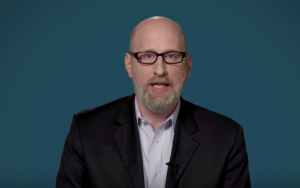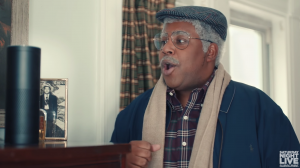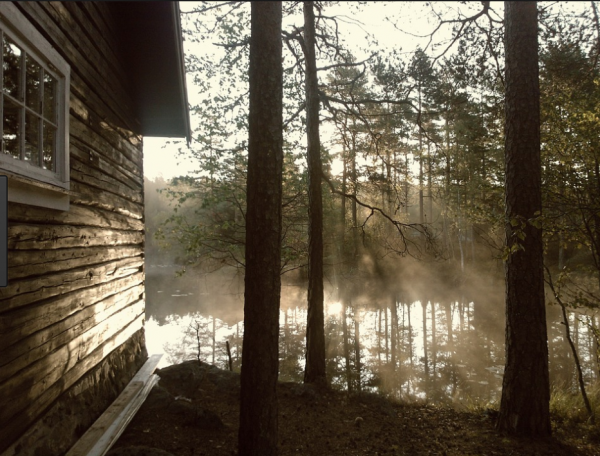
My dad, the son of a coal miner, grew up in the Tennessee mountains in a two room house with seven brothers and sisters. He used an outhouse, didn’t have a toothbrush until he was fifteen, quit high school six times, and never graduated. To escape the poverty of the mountain, he lied about his age, created a new identity (complete with a new, older-sounding name) and joined the Marines at 15. On his first day there, he got to eat a steak in the mess hall – the first time in his life he didn’t still feel hungry after eating.
He later got a GED and graduated from college in his fifties. In a way, my dad’s story became my story, and I grew up with an appreciation of hard work, the opportunities of capitalism, and the discipline military life provided.
As an adult, I carried the story in my heart, that my family comes from poverty, but (because of my dad’s hard work and the grace of God) overcame it. When I married someone who had graduated from Harvard Law School, it felt particularly poignant.
I was thankful. I moved away from Tennessee — to New York, then Philly, Kentucky, and back to my home state. Over the years, my husband and I had two kids and many adventures. Three years ago, David and I decided to add to our family of four through adoption. So, we packed up our two kids and went to Ethiopia. In order to meet the grandmother of our new daughter, we had to take a five hour drive from Addis Ababa. The trip was long and windy. Our van sped within inches of disabled people laying in the road, narrowly missing their prone bodies.
“Wait! Was that a person?” I gasped, looking back into the street at the body.
“It’s okay,” our driver said. “She is . . .” He made a motion to indicate the person we’d almost run over, the person in the middle of the street, was mentally disabled. The message was clear: Her life meant nothing. I looked out the window and saw beggars dragging their bodies through the streets. One man had tennis shoes tied to his elbows and was crawling, pulling himself across the dirt road. We saw kids who’d never seen running water, starvation, shriveled bodies, death.
Suddenly, my perspective changed, and I had a new “story.” Here’s the new version:
My dad was fortunate enough to be born into one of the richest countries of the world. As one of seven children of a coal miner, he was able to take advantage of amazing economic opportunities and a strong military which trained him in the ways of the world and fed him nourishing food. We lived in a big house he built from scratch, on acres of beautiful, wooded land. Our family was wealthy beyond imagination, and has only become more wealthy.
See the difference? Being “rich” is so relative.
Pastor Andy Stanley, in his great new book, How to Be Rich: It’s Not What You Have, It’s What You Do with What You Have, talks about how to be rich, not how to getrich. Why? Because you already are rich. Everyone has heard those statistics about how living in America is like winning the lottery. However, we never feel this, because “the rich person” is the one who has more than we do. It’s all relative. Stanley points out that Gallup did a poll about quantifying wealth. People who make $50 thousand per year believe that “rich people” make $100 thousand. Those who make $200 thousand believe true wealth begins at $400 thousand. And so on and so on. That makes the definition of “rich” simply “more than what I have.”
“Therein lies the problem,” Stanley writes. “Rich is the other guy. Rich is that other family. Rich isn’t just having extra. Rich is having as much extra as the person who has more extra than you do. Rich is having more than you currently have.”
In other words, people who are rich almost never feel wealthy, just as bone-thin anorexics don’t feel skinny.
Stanley’s book offers a nice perspective about how what we call poverty today “would’ve been considered middle class just a few generations ago.” Now, the average “poor family” has amenities rivaling middle-class families of the 1970s — air conditioners, microwaves, and color TVs. As a Federal Reserve economist said, “the rich may have gotten a little richer, but the poor have gotten much richer.”
In other words, if you’re reading this article on your laptop while sitting in a coffee shop drinking a non-fat latte, you’re rich. Neither false humility nor a denial of this fact helps you deal with your relative wealth in a healthy manner.
That’s where Stanley’s book comes in. The subsequent chapters, anecdotal and breezy, explain how to be good at being rich. If you are like most Americans, you aren’t doing “rich” well. (No judgments — when my attorney husband left for war, we had $70,000 worth of debt. We weren’t pulling it off too well either.) Stanley offers practical solutions to solve the problem of being an inept wealthy person. Lessons include how to own your money without it owning you, how to be generous even in your current circumstances, how to prepare your kids for their inheritance, and why you should increase your percentage of giving as your income increases.
In an interesting story, Stanley tells how Bill Gates traveled to India and discussed health care and poverty in a small hut with an impoverished woman. After he left, through a translator, a journalist asked if she realized she was just speaking to one of the richest men in the world. Unfazed, she responded that everyone from the West is rich. She sees us as all the same.
Being rich is a big responsibility. What are you going to do with your money?
Read more on the Patheos Faith and Family Channel and follow Nancy on Twitter and Facebook!









